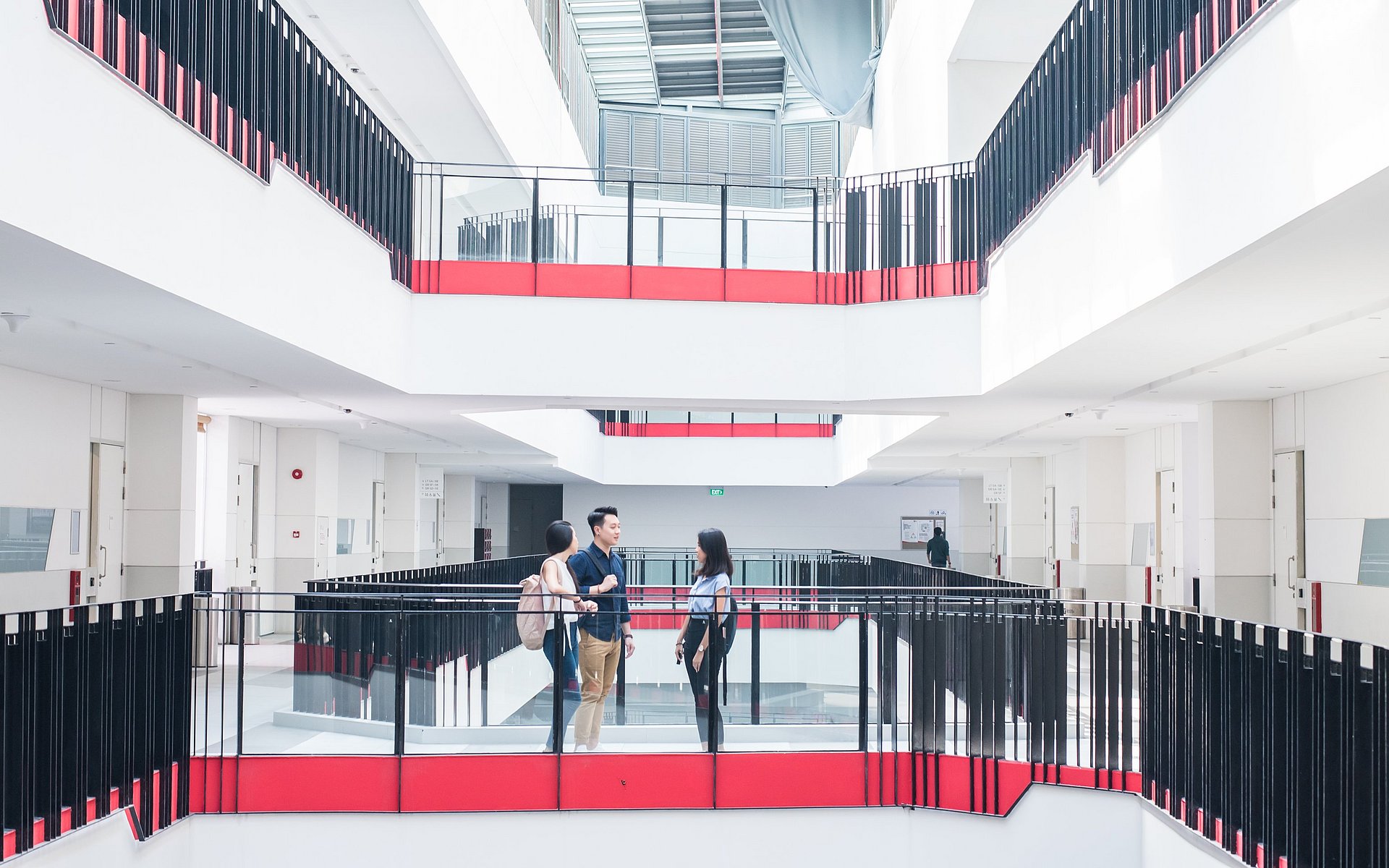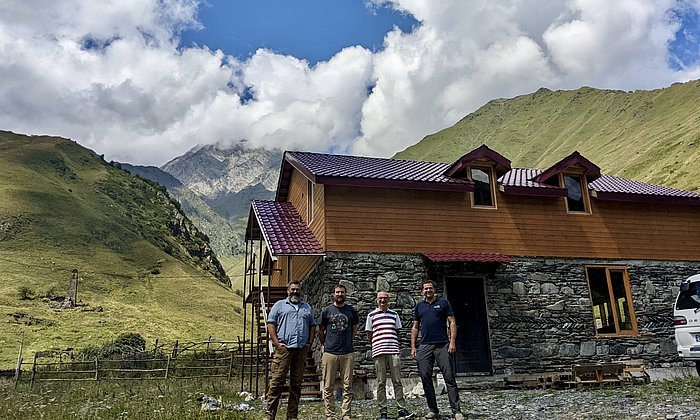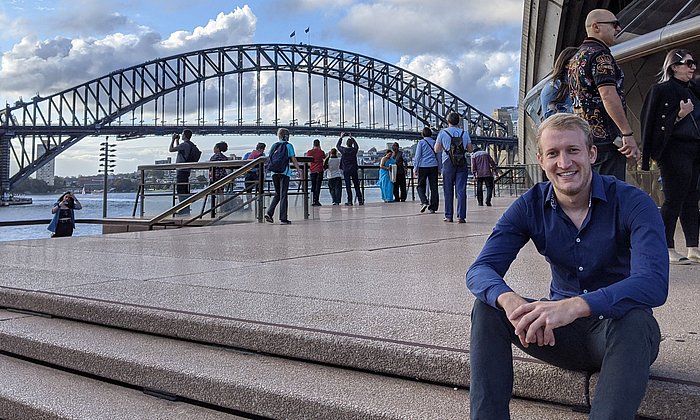Editor Andreas Schmidt travels to South-East Asia
A direct line to Singapore

Singapore is quite an experience: a high-tech, culturally diverse city state with a tropical climate and vegetation to match – sometimes cultivated on the 50th floor of a highrise complex. Since 2002 it has also been the home of TUM Asia, the first overseas campus of a German university. With funding from a TUM Montgelas Fellowship I had the opportunity to visit this megacity in September 2022 and, of course, to get to know the work of my colleagues there.
The morning after the day-long journey to Singapore, I take the ultramodern and always reliable underground train to the University City in the south-west of the city. Along with the country’s two major universities, the National University of Singapore and Nanyang Technological University, this is also home to the Singapore Institute of Technology and TUM Asia.
Passing palm trees and food courts, I soon reach the rear section of the campus where the nerve center of our overseas site is located on an office floor.. All of the employees, from curriculum developers to managers, have their offices here. As I soon observe during the first working days of my visit, this ensures that feedback from student advisers or digital communication channels is routed directly to the professors responsible for the course programs – practically as a call to action.
Digital marketing in Asia
Given my role in Munich as a responsible editor for website and social media content, it is exciting for me to see the different situations faced by digital marketing in countries such as China and India. The challenge of taking these conditions into account and managing them is addressed by agile teams who plan new formats for student recruitment, for example, and integrate them directly into communication concepts.
Insights into studies and research
At present TUM Asia offers seven degree programs and numerous continuing education formats, the contents of which are based on the latest research and the needs of industry in Asia. This combination makes the more than 2000 graduates of TUM Asia to date highly attractive for international employers.
Many of them also opt to remain in the world of research, as I see later in a meeting with the PUDO project team: along with alumni, the project also employs several students. With simulations and real-world tests, they are conducting research into the design of stations for autonomous vehicles, which are already operating at several locations in the city. This is typical of research in Singapore, which is generally carried out with partners from industry or the public sector and tends to focus on practical applications. The rollout of the first self-driving buses, with purpose-designed stops, is planned for the coming two years.
From electromobility to alternative protein sources
In the following days I visit our TUMCREATE multidisciplinary research platform at the Singapore Campus for Research Excellence and Technological Enterprise (CREATE), where our TUM researchers are working on various projects with other top universities located here. The projects are funded by the Singaporean state, but their relevance extends much further. The focus of the first two project phases was on electromobility and public transportation systems in megacities. In the third phase, “Proteins4Singapore”, launched in April 2022, scientists are exploring the cultivation and processing of non-animal protein sources.
Along with exciting insights into everyday work and the valuable personal experience I gained, the major benefit of my stay was the closer ties I formed with my colleagues there and the significant shortening of communication pathways between continents.
The Maximilian Graf Montgelas Program at TUM offers administrative employees the opportunity to strengthen their international competence through stays abroad and exchanges within the TUM global network. They can familiarize themselves with examples of good administrative practice and intensify direct contacts with international colleagues. The next application deadline is March 15 2023.
Study at TUM Asia
The deadline for applications to the five master’s programs in Aerospace, Green Electronics, Rail Transport and Logistics, Integrated Circuit Design and Industrial Chemistry is March 31 2023. Applications for the two bachelor programs in Chemical Engineering and Electronics & Data Engineering will be accepted until March 19 2023.
Technical University of Munich
- Andreas Schmidt
- tumcampus@tum.de


![[Translate to en:]](/fileadmin/user_upload_87/_processed_/6/4/csm_IMG-20220614-WA0034_cf34b6e092.jpg)

